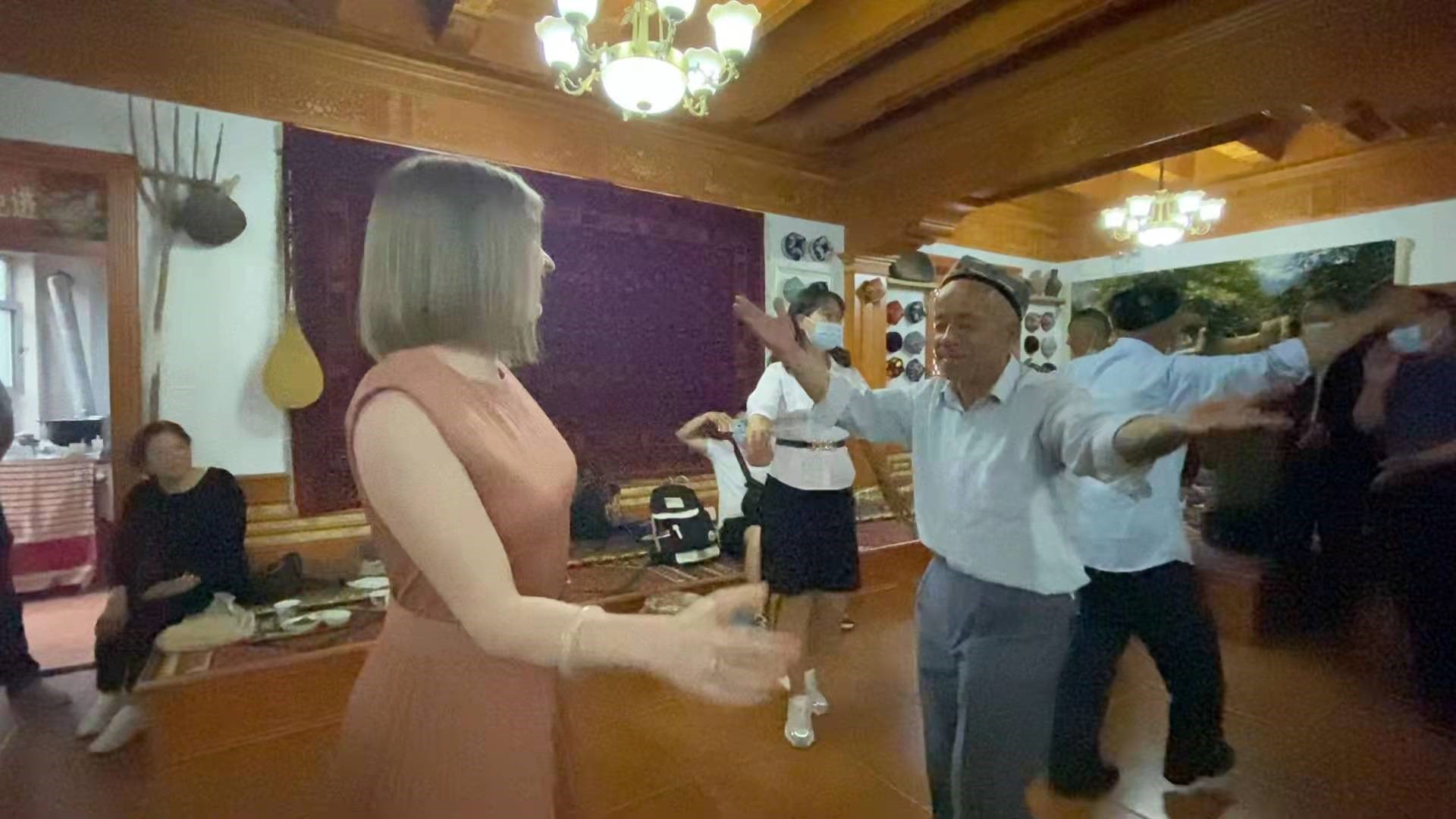My personal observations of Xinjiang
People enjoy travelling to unknown destinations because of the excitement and inspiration they can draw from their journeys. It is the thirst for finding out how people from other cultures live their daily lives that keeps us exploring. We are looking for answers to questions like: “What makes this place special and what story is there to tell?”
For me, travelling to Xinjiang was not only rich in new impressions but also full of interesting facts, such as the region’s demographics on the younger generation, the prevailing religions and customs or even how safety precautions are implemented given the incidents that have taken place in previous decades.
When I was chatting with a local who could easily be my grandfather over a cup of tea, he told me something about the people in Xinjiang that I can confirm. He said: “If you can speak, you are able to sing, and if you can walk, you are able to dance.” And as the musicians of the tea house started to play, he invited me for a traditional and highly energetic dance. Luckily, I had participated in a Uyghur dance class some days before, so I could follow his moves and enjoy the intriguing atmosphere.

Dance gathering accompanied by live music at a local tea house in Xinjiang. (People’s Daily Online/Su Yingxiang)
During my journey through Xinjiang, I have met not only Uyghurs but also people belonging to the Kazakh, Mongolian and Hui ethnic groups. Being able to speak Chinese myself, I assumed that there wouldn’t be a language barrier, but as I started talking to locals, I realized that some of them learned Chinese mandarin as a secondary language, and some could not even speak mandarin fluently.
When I visited a primary school later, I witnessed pupils attending Uyghur language classes and understood that some Uyghur people are much more familiar with the Arabic script than with Chinese characters. Standing in front of their school yard, I saw that other cultural aspects have also been integrated into their curriculum. On my left, there was a music class going on with pupils playing traditional instruments such as rawaps or dumbarks. And on my right, I saw a teacher giving a traditional dance lesson to a crowd of ten year olds, and silently thought: “No wonder they are all such good singers and dancers.”

Students at a local middle school in Kasghar attending a music class. (People’s Daily Online/Kou Jie)
Beyond education, I was also interested in the people’s beliefs, which was what motivated me to pay a visit to the biggest mosques in Kashgar. Xinjiang is home to more than 24,000 mosques. I have been told by the local Imam that his mosque saw around 2,500 people attending each service before the COVID-19 pandemic.
I had never been to a mosque before, but it looked just like I imagined it. There was a big entrance gate with high towers and round domes and crescents on the top. After passing through a lovely arranged garden, I climbed up stairs that led up to a beautiful prayer hall.
What stuck in my mind the most after this visit was a reminder from the Imam: “Not every Uyghur is a Muslim and not every Muslim is a Uyghur.” This in turn made me think about stereotypes in general and biases in the region.
When I was traveling through Xinjiang, I once again realized the importance of taking different perspectives into account. For people like me, who have been living in eastern China for several years but are now visiting Xinjiang for the first time, the mass of police stations might create an intimidating feeling. The conspicuous checkpoints might even reinforce a feeling of insecurity.
But in the eyes of the local population, these are all signs of safety and well-being. The checkpoints happen to be very useful in emergency cases as people can describe the location of a crime easily.
In one real-time test, the police traced down the relevant checkpoint after receiving a 110 call in under 45 seconds. This generally provides a huge advantage to security personnel in terms of preventing and reacting to real incidents.
This change of perspective was truly comforting to me and pushed my understanding of Xinjiang and its people to another level.
Photos
Related Stories
- China’s well-trodden path to rural revitalization and poverty alleviation in Xinjiang
- Xinjiang’s impressive development achievements
- Technology and tradition: How Xinjiang reconciles both
- China holds national meeting on pairing-assistance to Xinjiang
- Story of a Uygur tour guide in the ancient city of Kashgar
Copyright © 2021 People's Daily Online. All Rights Reserved.










